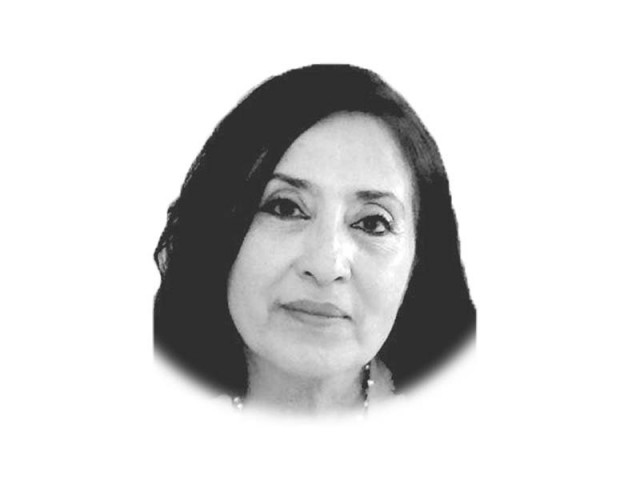Panama leaks and we the people
Does Donald Trump commit contempt of court each time he disparages a judge?

The writer is a journalist with over 30 years of experience
In Pakistan, the press plays safe when discussing the judiciary. It steers clear for fear of being slapped with contempt of court. Nightly, anchors hold forth on the expected Panama case judgment without speculating its outcome. None venture beyond the ‘red lines’ to discuss why the apex court has sat on the judgment for the better part of 2016. An editorial in an English-language newspaper puts it well: “Widespread public interest, intense media scrutiny and informed commentary are democracy-enhancing and should be encouraged when it comes to all state institutions. Over the decades, an excessively deferential approach to the Supreme Court has at times done a disservice to both democracy and the court itself.”
People everywhere are getting restless because of the holdup in the decision. At an upscale restaurant in Gulberg, Lahore, an investor from overseas vents his frustration. “I want to invest in Pakistan, it’s my homeland, but I will not take the plunge unless the decision comes and what the political future holds for this country,” he says while sipping cappuccino and enjoying the hustle bustle of affluent Lahoris swarming the café.
Later, in the evening at the home of an eminent lawyer, one is reassured by him that the apex court will not let the prime minister off the hook that easily. Our lawyer friend cites the statements of our lordships who have made it amply clear that the Constitution clearly stipulates that the holder of the highest office in Pakistan must be of sound moral character. “Even I would fail to qualify,” laughs the lawyer. “For the prime minister to be eligible, he or she must have a clean record. Does Nawaz Sharif fit the bill?” Indeed, finding an honest politician is like finding a needle in a haystack. “But, I am confident that the Panama case judgment will clean the stables for future prime ministers to come. You will now see a newer, sanitised political system,” he says. But others are less optimistic. They think the decision will be a “middle of road” kind, which could provide an escape route for the prime minister and his family.
How is the world viewing the first anniversary of Panama leaks? It was one year ago, the International Consortium of Investigative Journalists (ICIJ) launched the biggest investigation in journalism history. According to its website, ICIJ and more than 100 media partners published hundreds of stories revealing the offshore financial secrets of many of the world’s richest and most powerful people. “The investigation sparked protests, resignations, arrests and fierce debate around the world. And that was just the beginning.” We’re told that ICIJ worked with more than 500 journalists to continue the investigation and help bring transparency to a secretive world. “ICIJ’s staff have flown tens of thousands of miles to train reporters, to address parliamentary inquiries and to continue exposing the shadowy industry of offshore finance.” Under the headline: Where Are They Now? A Year Later, Mixed Fortunes For Panama Papers Line-Up, readers are informed of how governments in more than 70 countries have launched ‘over 150 investigations, inquiries, audits and probes’150 investigations, inquiries, and probes” into the affairs of thousands of people and corporations linked to Panama Papers. Just last month, Malta’s tax office announced it had recovered more than $10 million as a result of investigations sparked by the Panama Papers and another ICIJ project, Swiss Leaks.
Here’s one interesting comment by a Pakistani reader: I salute the whole team of the journalists, courageously serving humanity & fighting against the corrupt in power fooling people for a long time. Surprisingly Zardari is not included in this list who is famous globally as “Mr Ten Percent.” More research is needed to locate his allegedly ill-gotten wealth amounting to more than a billion dollars.
Meanwhile, Pakistanis await justice from the Supreme Court. The above article states that Pakistan remains “ensnared in public scandals and ongoing probes,” petitioned by the political opposition against Prime Minister Nawaz Sharif, “whose children owned real estate in London through companies created by Mossack Fonseca, documents in the Panama Papers show. The opposition has accused the prime minister of failing to disclose the family’s offshore connections and of laundering money abroad to pay for the properties. Sharif and his family deny any wrongdoing.”
Can Pakistan’s judiciary win back the confidence of the people? That is what the chief justice asked his colleagues recently.
“I do not believe it can but it must try,” says a Pakistani physician visiting from abroad. According to him, the solution is quick and prompt justice at all levels. “If the Supreme Court had given a speedy decision on Panamagate, then the people would have saluted the judiciary.” Not doing so, only gives rise to wild conspiracy theories among different people whose faith in the judicial system is shaky. “Judges are a part and parcel of the same system that we are reared in. But they are elevated to a high rank where they sit on judgment over us and therefore must never be suspected of wrongdoing.”
Published in The Express Tribune, April 7th, 2017.
Like Opinion & Editorial on Facebook, follow @ETOpEd on Twitter to receive all updates on all our daily pieces.















COMMENTS
Comments are moderated and generally will be posted if they are on-topic and not abusive.
For more information, please see our Comments FAQ